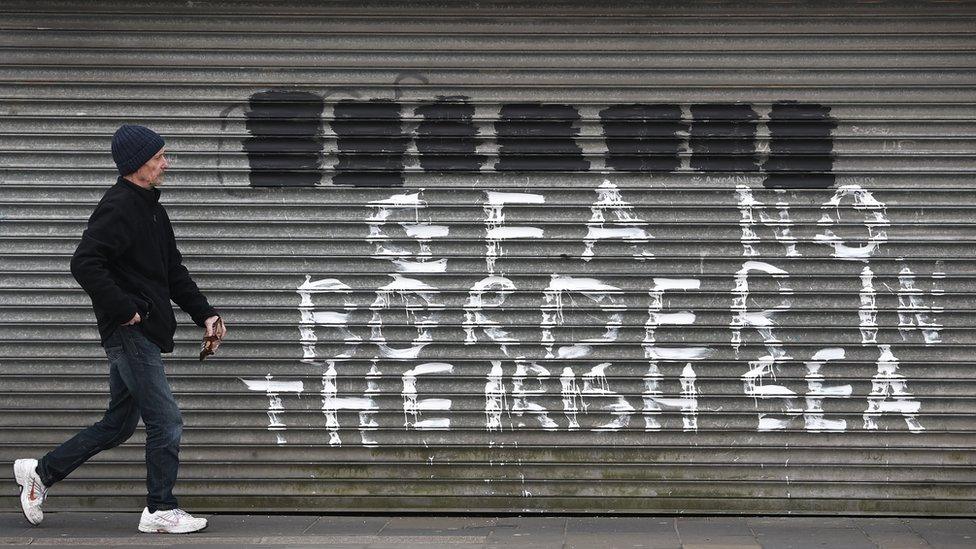NI riots: British and Irish governments have been 'hands-off'
- Published
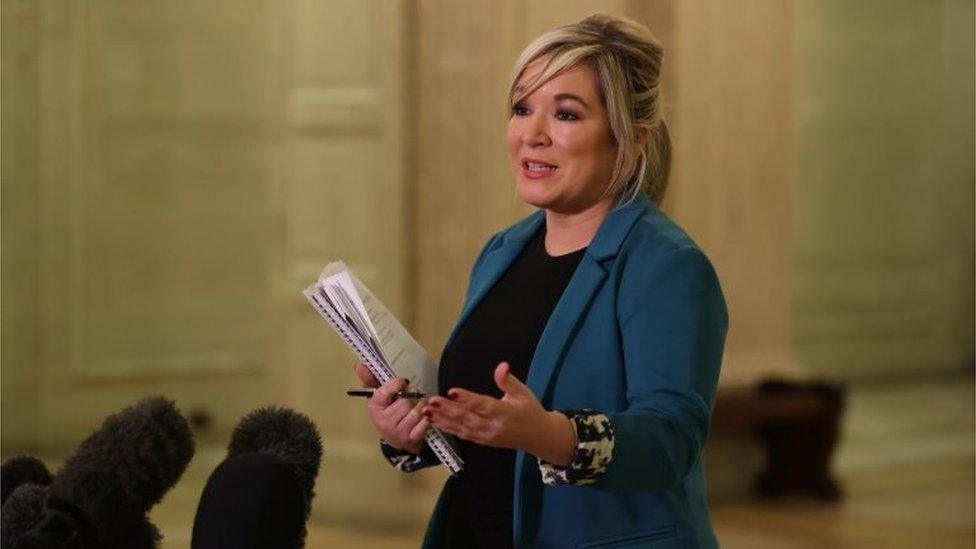
The Irish and British governments have demonstrated a "hands-off" approach to Northern Ireland down through the years, Michelle O'Neill has said.
The deputy first minister said it is time for both governments to re-engage, saying the peace process needs to be "nurtured".
Almost 90 police officers have been injured in rioting in the past week, although recent nights have been quiet.
Over the weekend Boris Johnson turned down calls for an emergency summit., external
The lack of trouble in recent nights has been linked to the death of the Duke of Edinburgh, although there were disturbances in Belfast and Coleraine on Friday night, hours after his death was announced.
Saturday also marked the 23rd anniversary of the signing of the Good Friday Agreement - which signalled an end to 30 years of sectarian conflict in Northern Ireland - with Taoiseach (Irish PM) Micheál Martin warning against a "spiral back" to violence.
Westminster and Dublin 'need to be engaged'
The rioting, which has involved people as young as 12, has largely seen youths throwing bricks, fireworks and petrol bombs at lines of police officers and vehicles.
Former Northern Ireland secretary Lord Hain has said the situation calls for a prime ministerial visit.
Secretary of State Brandon Lewis travelled to Belfast last week for a series of political meetings in the wake of the violence.
It is understood that he was also in Northern Ireland on Monday for meetings.


On Monday, Mrs O'Neill said both governments need to be "very much engaged".
"I think that down through the years, even before the institutions collapsed on the back of the RHI (Renewable Heat Incentive) scandal a few years ago, the two governments had a very hands off approach," Ms O'Neill told Good Morning Ulster.
"And it's been demonstrated that that doesn't work."
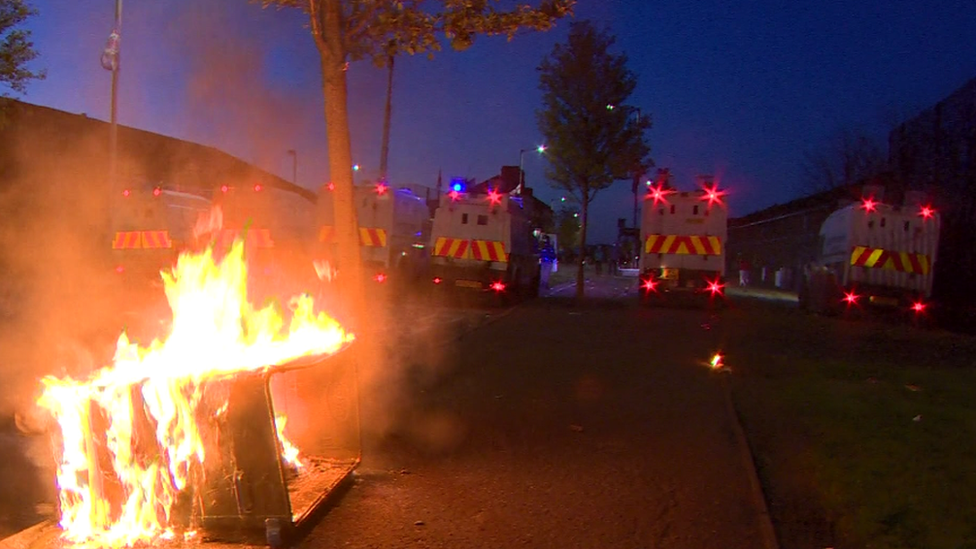
Violence erupted in many parts of Northern Ireland over the past week
When the disorder began in loyalist areas at the end of March, it was linked to both a decision not to prosecute Sinn Féin leaders for breaching Covid regulations at a funeral last June and tensions over the Irish Sea border imposed as a result of the UK-EU Brexit deal.
Some violence has also been linked to police operations targeting the South East Antrim UDA, a paramilitary group involved in organised crime.
Ms O'Neill dismissed as "nonsense" a claim by Democratic Unionist Party (DUP) chairman Lord Morrow, who said the authorities had shown "total and absolute capitulation to the demands of militant republicanism"., external
First Minister Arlene Foster said people do hold "strongly held perceptions" and criticised Ms O'Neill for dismissing Lord Morrow's claims.
"How do we change perceptions? We change perceptions by engaging, by listening.
"It is about engaging and listening to people, and challenging some of those perceptions.
"Yes there are huge challenges, but we need to face them politically."
A member of the Irish parliament, Fine Gael TD Neale Richmond, has called for the British-Irish Intergovernmental Conference to be convened this week.
He said such a meeting "would allow both governments to play a proactive role in providing solutions to the current problems of street violence".
Related topics
- Published12 April 2021
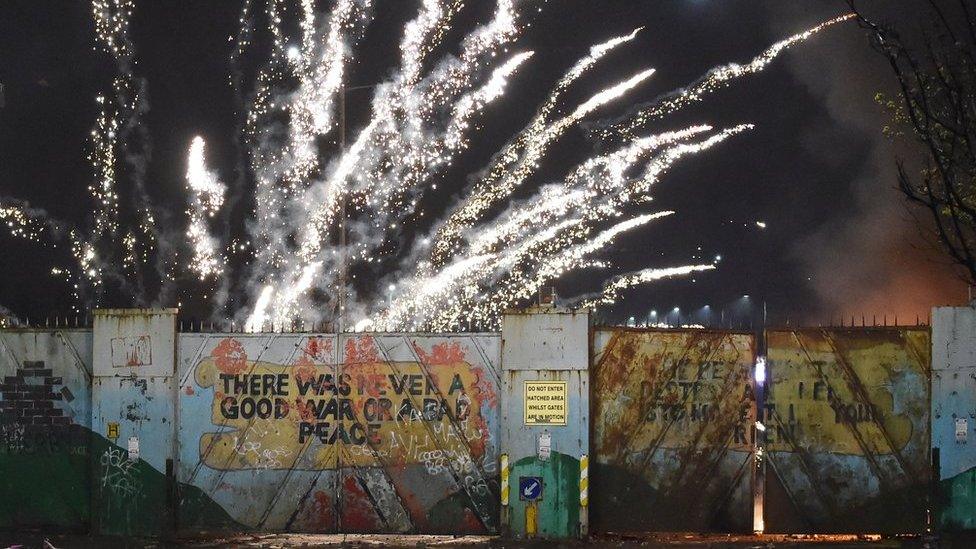
- Published8 April 2021
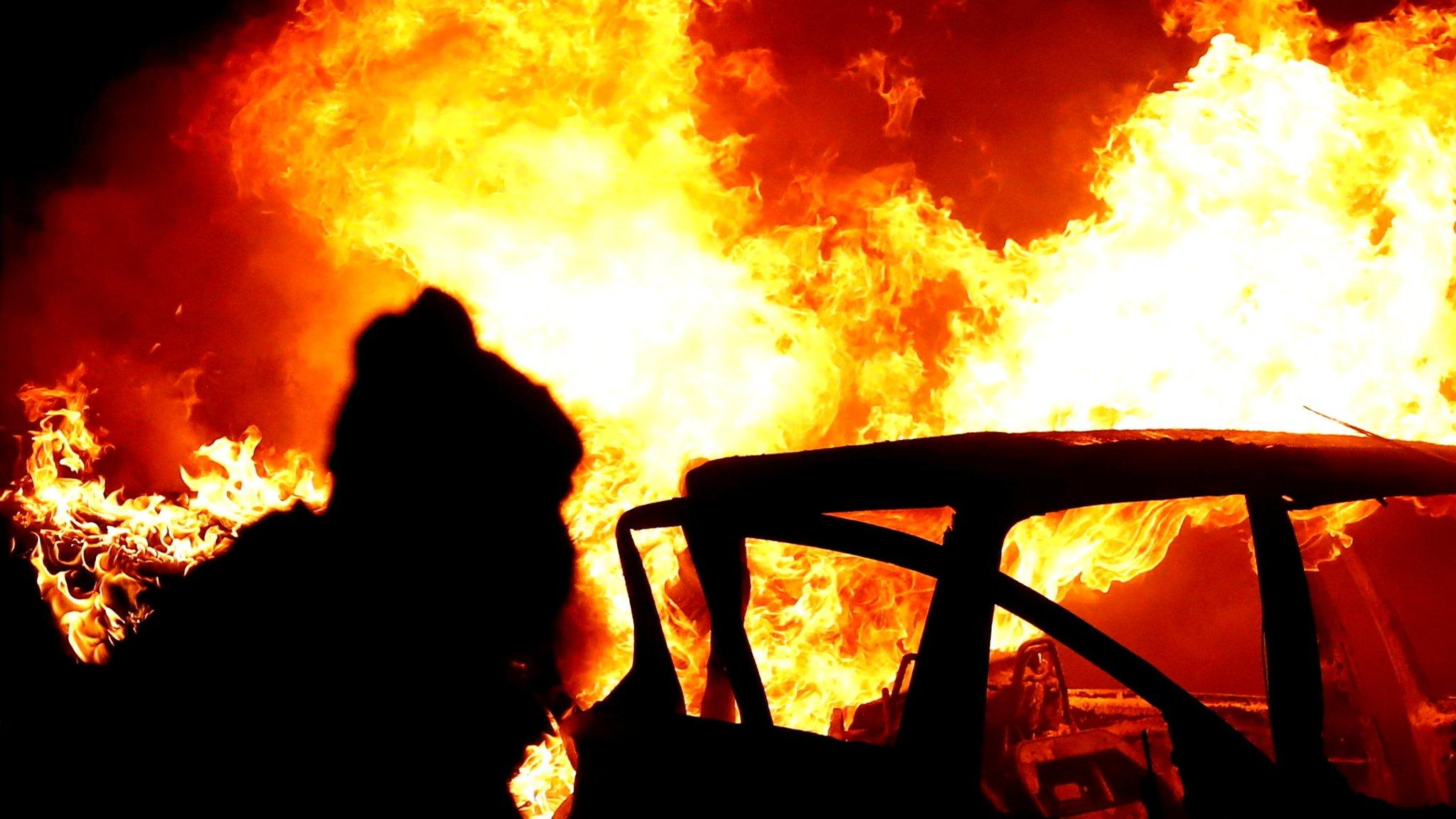
- Published9 April 2021
